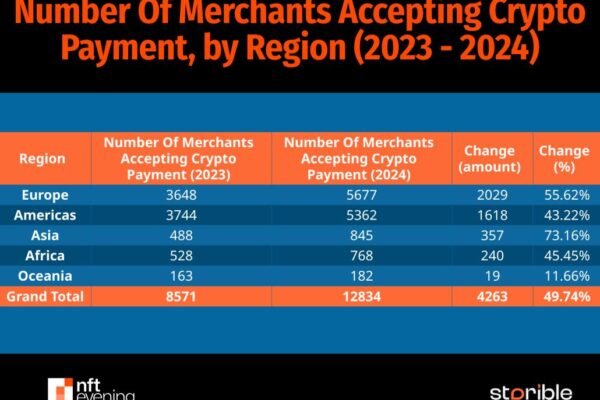

Nigerian President Signs Investment and Securities Act 2024 into Law, Recognizing Cryptocurrencies as Securities
In a landmark move for Nigeria’s financial ecosystem, President Bola Ahmed Tinubu has signed the Investment and Securities Act (ISA) 2024 into law, formally classifying virtual assets and investment contracts as securities. This development places Virtual Asset Service Providers (VASPs), Digital Asset Operators (DAOPs), and Digital Asset Exchanges under the regulatory oversight of the Securities and Exchange Commission of Nigeria (SEC Nigeria).
The ISA 2024 replaces the Investments and Securities Act No. 29 of 2007, ushering in sweeping regulatory reforms aimed at enhancing market transparency, bolstering investor protection, and driving sustainable economic growth.
A Modern Framework for Nigeria’s Evolving Financial Market
The passage of the ISA 2024 expands SEC Nigeria’s regulatory authority to align with global financial standards set by bodies such as the International Organization of Securities Commissions (IOSCO). This move is expected to strengthen Nigeria’s position in global financial markets by maintaining its “Signatory A” status under IOSCO’s Enhanced Multilateral Memorandum of Understanding (EMMoU)—a key benchmark for regulatory credibility.
According to SEC Nigeria, the Act introduces major reforms to enhance the structure and security of exchanges, digital asset platforms, commodities trading, and financial market infrastructure, ensuring Nigeria remains competitive in an increasingly digital global economy.
Key Highlights of the Investment and Securities Act 2024
✅ Formal Recognition of Virtual Assets: The Act classifies virtual assets as securities, bringing VASPs, DAOPs, and Digital Asset Exchanges under SEC regulation to ensure compliance, investor safety, and fair trading practices.
✅ New Classification of Exchanges: The law introduces Composite and Non-composite exchanges. Composite exchanges can list and trade all securities and products, while Non-composite exchanges are restricted to specific asset classes.
✅ Strengthened Regulation of Financial Market Infrastructure: The Act provides a framework for regulating clearinghouses, trade depositories, and central counterparties, which are vital for maintaining a stable and efficient financial market.
✅ Support for Commodity-Based Economic Growth: Legal provisions for commodity exchanges and warehouse receipts aim to facilitate structured financing and reduce risks for sectors such as agriculture and mining.
✅ New Fundraising Avenues for Governments: State and local governments now have expanded access to capital market financing, reducing reliance on federal allocations and commercial borrowing for infrastructure projects.
✅ Tougher Crackdown on Fraud and Ponzi Schemes: The Act introduces stricter penalties, including significant jail terms, for unlicensed investment schemes, reinforcing Nigeria’s commitment to a cleaner investment landscape.
✅ Investor Protection and Market Stability: Transactions processed through clearinghouses and central counterparties are now protected from general insolvency laws, reducing risks of financial shocks.
✅ Expanded Issuer Participation: More entities are now eligible to issue securities, fostering innovation and providing investors with diverse capital market opportunities.
✅ Increased Market Transparency: The use of Legal Entity Identifiers (LEIs) in securities transactions enhances traceability, accountability, and risk management.
✅ Strengthening of the Investments and Securities Tribunal: Changes to the tribunal’s structure and jurisdiction aim to improve dispute resolution efficiency and protect investor rights.
SEC Nigeria and Market Leaders Applaud the Development
SEC Nigeria Director-General, Dr. Emomotimi Agama, hailed the presidential assent as a major milestone for investor confidence and market innovation.
“The ISA 2024 underscores our dedication to fostering a dynamic, inclusive, and resilient capital market. By addressing regulatory gaps and incorporating forward-looking provisions, the Act empowers SEC Nigeria to drive innovation, enhance investor protection, and position Nigeria as a top destination for both local and foreign investment.”
Dr. Agama also commended the National Assembly for its bipartisan support and acknowledged the contributions of the Minister of Finance and the Minister of State for Finance in aligning the Act with Nigeria’s broader economic vision.
Implications for Nigeria’s Capital Market
With clearer regulations for emerging asset classes, the ISA 2024 is expected to reignite investor interest in Nigeria’s capital markets, ensuring a secure and competitive financial landscape.
By fostering a balanced ecosystem for issuers, exchanges, and digital asset operators, while equipping regulators with stronger tools to combat fraud, this Act lays the foundation for deeper capital formation, economic diversification, and international market competitiveness.
With this legislation, Nigeria takes a bold step towards establishing a world-class capital market—one that is innovative, transparent, and built for the digital age.
Read also: A Look at the State of Crypto Regulation Across Africa in 2024







